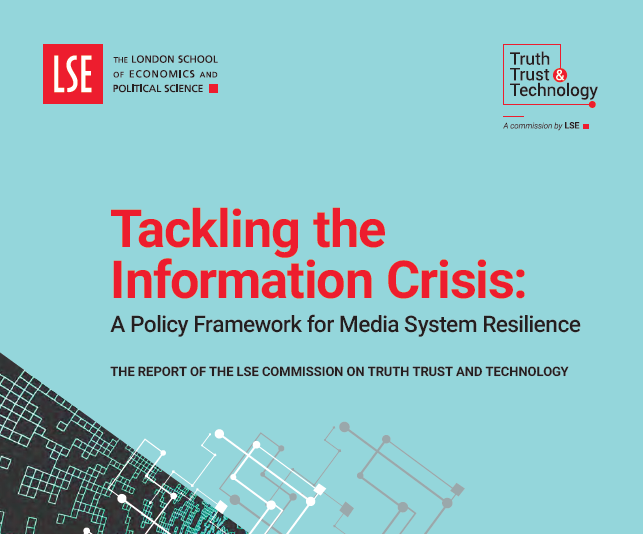 A few weeks ago, the European Commission opened an antitrust investigation into the Most Favored Nation clauses (MFNs) included in the agreements that tech giant Amazon concluded with book publishers. Konstantina Bania, Researcher at Fundação Getulio Vargas and the European University Institute, explains the implications of these clauses for competition in content markets and argues that the Commission’s approach is inconsistent with older decisions.
A few weeks ago, the European Commission opened an antitrust investigation into the Most Favored Nation clauses (MFNs) included in the agreements that tech giant Amazon concluded with book publishers. Konstantina Bania, Researcher at Fundação Getulio Vargas and the European University Institute, explains the implications of these clauses for competition in content markets and argues that the Commission’s approach is inconsistent with older decisions.
The Commision’s press release is somewhat vague, but the clauses in question might be retail parity MFNs, that is, clauses that require publishers to guarantee that they will lower the retail price of their e-books in the Kindle store to match the lowest price offered by any other store, such as Apple’s iBookstore. This is not the first time MFNs have fallen under the EU antitrust microscope. Three years ago, in the e-books case, which concerned the joint decision (in antitrust parlance cartel or collusion) of five major publishing houses to switch to the agency model – whereby publishers set the retail prices of their e-books and distributors (such as Amazon and Apple) get a commission from the publishers for every book sold – the Commission imposed on the publishers the duty not to enter into new agreements that include retail parity MFNs for five years. But while the E-books commitments decision creates the impression that contracts with MFNs are acceptable from a competition law perspective so long as they are not ‘tainted’ with collusion (for otherwise why would the Commission limit the duration of the remedy to five years?), it can be inferred from the press release concerning the Amazon investigation that the Commission considers the inclusion of MFNs in contracts concluded by an undertaking with significant market power to be a breach of the EU competition rules.
Can MFNs, particularly retail parity MFNs, promote competition in media markets? This contribution will attempt to answer this question, thereby addressing to some extent the legal uncertainty that the Commission’s inconsistent approach towards MFNs has created. The issue at hand is becoming increasingly important: MFNs appear to be particularly attractive to online distributors, which explains why over the past three years national competition authorities have been called upon to decide whether MFNs constitute an antitrust violation (see here and here). From a consumer perspective, we should be aware of the fact that MFNs have a direct impact on the prices we are charged when we conclude transactions online (e.g. when we purchase an e-book, make a hotel reservation, etc.).
MFNs: The pros and cons
‘Typical’ MFNs establish the producer’s obligation not to offer lower prices to other distributors. Every time the producer (in our case the publisher) offers a distributor (in our case Amazon’s competitors) a discount, it is obliged to extend the same offer to all other distributors. In theory, typical MFNs may create both pro- and anti-competitive effects. As regards anticompetitive effects, MFNs may reduce or eliminate the incentive of the producers to offer potential distributors better deals, thereby discouraging entry in downstream markets. MFNs may further facilitate concentration downstream; a distributor with significant bargaining power, such as Amazon, does not benefit solely from the conditions that are the outcome of the negotiations it itself conducted with the producer, but also from any favorable conditions that any other distributor managed to obtain.
With respect to pro-competitive effects, it is usually argued that, in cases of perishable products (e.g. fruit), MFNs may address problems relating to transaction delays; instead of waiting for the quality of the product to worsen and hence the price to drop, an MFN clause eliminates the distributors’ incentive to delay the order. This in turn allows the producer to allocate its resources more efficiently. MFNs may also resolve the ‘hold up’ problem, which arises in cases where the distributor is deterred from entering the market because it fears that the producer will act opportunistically by engaging in rent-seeking behavior. An MFN clause encourages the distributor to make the contract-specific investment required to penetrate the downstream market because it provides it with some certainty that the producer will not free ride on its investment, offering subsequent entrants better deals. This may be a way to open up risky markets, thereby promoting innovation.
Do MFNs produce pro-competitive effects in media markets?
It is questionable whether the efficiencies put forward in favor of MFNs apply to media content. The ‘perishability’ argument is somewhat irrelevant due to the digital and durable nature of the content that is the contract service. Put simply, unlike fruit, media content does not ‘go bad’. Even if we were to limit this justification to certain types of media content that have a short life cycle, most notably news and sports competitions, the ‘perishability’ argument could be accepted in cases where the incentive of the media producer to sell the content is greater than that of the distributor because the last minute price drops from which the latter benefits outweigh any quality deterioration that may have resulted from delaying the transaction. However, in the case of ‘perishable’ media content, the incentives of producer and distributor are aligned because end-consumers are interested in immediate fruition (e.g. football matches may attract large audiences only if their result remains unknown, i.e. if the competition is broadcast live). As for the argument that an MFN clause is needed to assure the online distributor that it will recoup its investments, this is also weak in our case; creating a website is not expensive whereas in the case of already established retailers the relevant contract-specific investments (e.g. text editing, online advertising, etc.) are, as a rule, not particularly high. This issue was addressed in a decision adopted by the Bundeskartellamt concerning the MFN contained in an agreement between German hotels and an online booking portal. The Bundeskartellamt, arguably correctly, rejected the portal’s argument that room price differences across competing platforms would eliminate its incentives to improve service quality on the grounds that the investments made by the portal were fairly limited.
Even if one were more open to accepting that ‘typical’ MFNs may produce certain pro-competitive effects, it would seem difficult to find any objective efficiency rationale for retail parity MFNs. The peculiarity of these MFNs is comprehensively explained by the US Department of Justice in the antitrust action it brought against Apple and the five publishers involved in the E-books case. The relevant paragraph reads as follows:
‘That provision was not structured like a standard MFN in favor of a retailer, ensuring Apple that it would receive the best available wholesale price. […] Instead, the MFN here required each publisher to guarantee that it would lower the retail price of each e-book in Apple’s iBookstore to match the lowest price offered by any other retailer, even if the Publisher Defendant did not control that other retailer’s ultimate consumer price. That is, instead of an MFN designed to protect Apple’s ability to compete, this MFN was designed to protect Apple from having to compete on price at all’ [emphasis added].
Retail parity MFNs are fundamentally different from a typical MFN clause. As opposed to the latter, the former restrict the distributor’s freedom to offer the product at lower prices. Retail parity MFNs must also be distinguished from Resale Price Maintenance (RPM): RPM may be limited to one or a few retailers whereas a retail parity MFN is a disguised form of collective RPM. With that said, it is not surprising that the investigations opened by the OFT and the Bundeskartellamt into Amazon’s retail parity MFNs have led to the retailer removing the clause indefinitely (see here). It bears noting that the Commission opted for the same solution in an older case concerning the MFN clauses contained in agreements between the Hollywood majors and European pay-TV operators, which provided that any increase agreed with one studio automatically resulted in parallel increases in the prices of the other studios (see here).
In view of the unlikely scenario that MFNs in general and retail parity MFNs in particular will produce any positive effects on competition in media markets, the e-books decision, which suggests that after a five-year period publishers may include MFNs in the agreements they conclude with online retailers, is somewhat confusing. In moving forward with the Amazon investigation (and any future antitrust investigation into MFNs that affect media markets), the Commission should not hesitate to ask powerful distributors to remove these clauses from their arrangements with content producers.
This article gives the views of the author, and does not represent the position of the LSE Media Policy Project blog, nor of the London School of Economics and Political Science.




